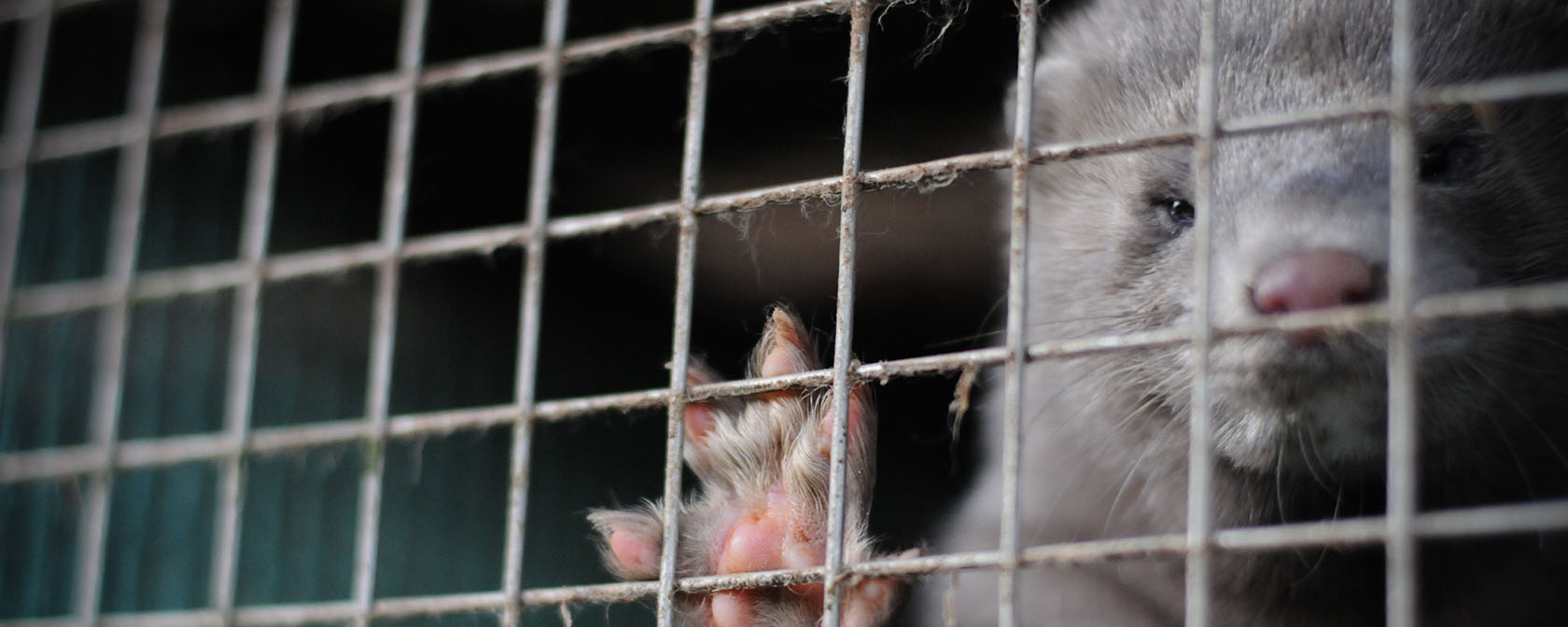By Sara Amundson and Kitty Block
Mink have tested positive for the coronavirus on a fur farm in Wisconsin, the largest fur producing U.S. state. The news broke today even as media reports confirmed thousands of mink have died of the disease on fur farms in Utah, the first state to report such infections on mink farms in August.
The outbreak in Taylor County, Wisconsin, was confirmed today by the National Veterinary Services Laboratories. The farm is now under quarantine and is working with local, state and federal authorities to investigate the outbreak and assist with carcass disposal and cleaning, according to reports.
European countries like the Netherlands, Spain and Denmark have also reported coronavirus outbreaks on mink fur farms since the pandemic began. But while they’ve taken swift steps to prevent future outbreaks—the Netherlands, where 64 fur farms have now reported outbreaks, advanced its deadline to end mink fur farming by three years—the United States has failed to act proactively since the Utah outbreak, other than to offer vague guidance for fur farms. This despite the fact that 7,000 to 8,000 mink have died on Utah fur farms.
Such inaction by a nation with the world’s largest reported coronavirus case count among humans is indefensible. And the disregard for the animal suffering involved is unforgiveable. Fur farms are miserable places for wild animals like mink. The animals are typically held captive in small cages with no enrichment, and their most basic needs are often denied. Our investigations have shown animals on fur farms being bludgeoned to death and even being skinned alive.
Now, with the coronavirus outbreak killing the animals by the thousands, the suffering has only intensified.
The go to solution to the outbreak overseas has been to cull mink by the millions, often by gassing. But the only way to end the dual problems of pandemic outbreaks on fur farms and the animal suffering inherent in fur farming is to close down this industry for good.
The infections in Wisconsin and Utah—our two biggest fur-producing states—should serve as a wake-up call for our government. Industry figures say there are 245 fur farms in 22 U.S. states and given the high rate of infections on mink fur farms around the world, it would not be a stretch to say that any and all of these could face a potential outbreak.
According to news reports this week, the Fur Commission USA said fur from the dead infected animals in Utah would be processed to remove any traces of the virus and then used for coats and other garments. Such callousness is not entirely surprising from an industry group that is fighting to hold on to a dying business built on animal cruelty. Fur has no future, as we’ve demonstrated time and again in recent years. Major fashion houses and retailers are no longer using it or selling it, and fashion icons have turned away from it. Consumers are increasingly seeking out alternatives, and sales of fur in the United States have been crashing year after year.
In our recently released policy plan for preventing future pandemics, we called for a ban on the trade in animals like foxes, raccoon dogs and mink who are used for fur and are common transmitters of zoonotic diseases. We also called on apparel companies, governments and other entities to take steps to eliminate both the fur farm industry and demand for animal fur. Following the outbreak in Wisconsin, we are reminding the U.S. government—and governments around the world—that the sooner this industry shuts down, the better off, and safer, we will all be.
Kitty Block is President and CEO of the Humane Society of the United States.




